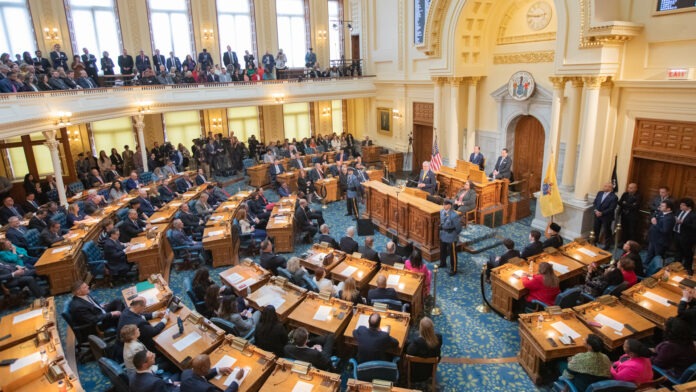New Jersey voters will head to the polls on November 4, 2025, for a packed election cycle that could reshape the state’s political landscape. In addition to the much-watched gubernatorial contest, every seat in the General Assembly is up for grabs, a special State Senate race will decide representation in District 35, and a wide range of municipal and school board elections will take place across the state. The results will play a decisive role in determining the direction of policy debates on affordability, education, and governance over the next several years.
One of the defining elements of this year’s election is the debut of a new ballot structure. Earlier in 2025, a federal court struck down New Jersey’s “county line” ballot format, which for decades had given party-endorsed candidates prime placement on primary election ballots. Replacing it is an “office block” format that lists all candidates under the office they seek, leveling the playing field for challengers and weakening the influence of county party organizations.
The impact was evident during the June primaries. For the first time in more than ten years, five party-backed candidates lost their races, underscoring how the new format has introduced volatility and competition into districts that once leaned heavily on the strength of party endorsements. Observers believe that trend could carry into November, making contests in several legislative districts far more competitive than in past cycles.
The entire 80-seat General Assembly will be decided in November. Democrats currently hold a 52–28 majority and are aiming to preserve or expand their advantage in the lower chamber. Republicans, energized by the shifting primary dynamics, are hoping to chip away at Democratic control and build momentum heading into future elections. Key battlegrounds are emerging in districts such as the 9th, 10th, and 32nd, where both parties are mobilizing to sway undecided voters.
In addition to the Assembly contests, voters in Bergen and Passaic counties will decide a special State Senate election in District 35. The seat was vacated when former Senator Nellie Pou won a seat in the U.S. House of Representatives. Democrat Benjie Wimberly, currently serving in the Assembly, is seeking to hold the seat for his party against Republican challenger Frank Filippelli. Both candidates advanced through uncontested primaries, but the general election is expected to draw significant local attention given the district’s political importance.
While the legislative races are front and center, the ballot will also feature local contests that directly affect communities across New Jersey. Municipal races, school board elections, and the Newark Public Schools board contest will provide voters with opportunities to shape leadership at the local level, where issues like education, public safety, and community investment are most directly felt.
The 2025 election cycle is also marked by efforts to boost voter turnout. The ACLU of New Jersey has launched its “Vote Your Values” initiative to encourage civic engagement and ensure that residents feel empowered to make their voices heard. While no major statewide ballot initiatives are listed this year, the outcome of legislative and gubernatorial races will shape how the state addresses pressing issues such as property taxes, housing affordability, and education reform.
At the top of the ticket, voters will choose the next governor and lieutenant governor. On the Democratic side, Mikie Sherrill is running for governor with Dale Caldwell as her running mate for lieutenant governor. The Republican ticket is led by Jack Ciattarelli, who is joined by James Gannon as his running mate. The gubernatorial contest is expected to drive turnout statewide, but the down-ballot races may prove just as consequential in determining New Jersey’s political direction.
With the removal of the county line format, the state’s political dynamics are shifting in real time. November’s elections could signal the beginning of a new era in New Jersey politics, one where grassroots organizing, voter engagement, and candidate visibility carry more weight than party endorsements alone. As campaigns ramp up in the final weeks, voters will have no shortage of critical choices to make, from the State House in Trenton to their local school boards.
For ongoing coverage of statewide campaigns, legislative battles, and local contests, Explore New Jersey continues to provide in-depth reporting on politics in New Jersey leading up to Election Day.












